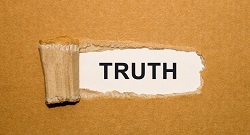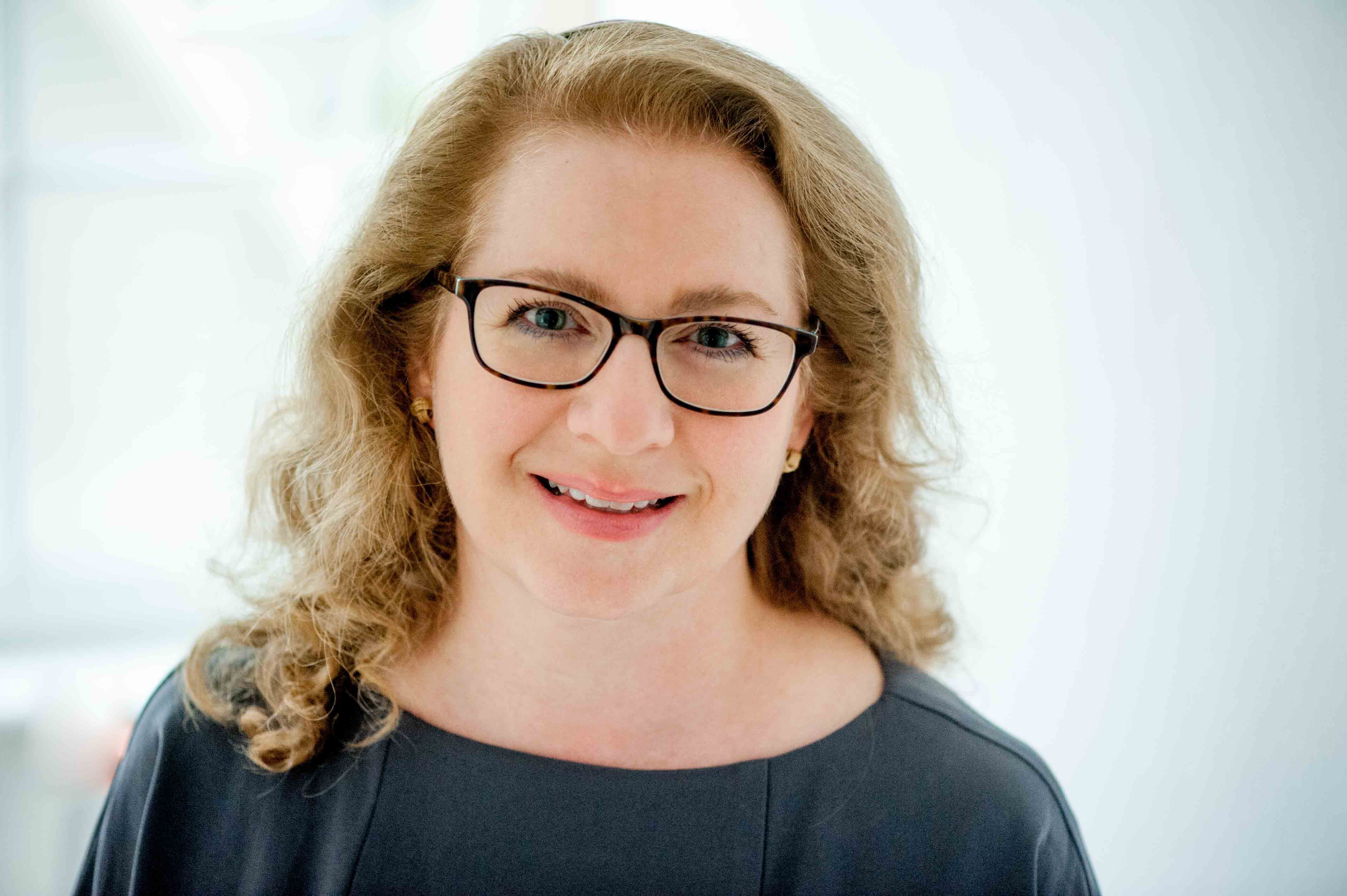
In my experience as a living, breathing human being, regardless of gender, age, or orientation there is only one correct answer to the question, “Honey, does this outfit look OK?”
The answer comes from the Torah in this week’s portion Vayeira, and is attributed to no greater authority than God: it is to say whatever is necessary to make the person in the outfit feel good about themselves and supported by you. Even if that means you have to lie, it is a mitzvah!
The moment when God lies occurs in an oddly familiar dialogue between God, Abraham, and Sarah, in Genesis 18:1-15:
Sitting the shade of his tent, Abraham looks out to the horizon and sees three weary travelers off in the distance. Ever the hospitable host, Abraham rushes out to greet them, welcomes them back to his tent, and washes their feet. Sarah remains in her tent but is an equal participant in this mitzvah of hachnasat or’chim, “welcoming guests.” She quickly prepares bread for a delicious meal to serve their unexpected visitors.
As they eat their meal the strangers ask Abraham, “Where is your wife Sarah?” The alert student will ponder, how did they know her name when Abraham had not shared it? After all, Sarah was in her tent and had not been introduced.
Abraham replies, “She is there, in the tent.”
Then one of the strangers make a bold prophecy, “I will return to you next year, and your wife Sarah shall have a son.”
Sarah was listening at the entrance of the tent, which was behind the prophesizing guest. At this time in our story, Torah records that, “Abraham and Sarah were old, advanced in years; Sarah had stopped having the periods of women. And Sarah laughed to herself, saying, “Now that I am withered, am I to have enjoyment, with my husband so old?”
At this comment you can almost hear the awkward silence leap out of the scroll. Did Sarah just throw shade on her husband Abraham?
God tries to intercede before this escalates and rhetorically asks Abraham, “Why did Sarah laugh, saying, ‘Shall I in truth bear a child, old as I am?’ Is anything too wondrous for the Eternal? I will return to you at this time next year, and Sarah shall have a son.”
Sarah hears this exchange between God and Abraham, and tries to cover her embarrassment at giving voice to her inner thoughts, saying, “I did not laugh.” But God catches Sarah in this lie and calls her out on it, saying directly to her, presumably out of earshot of Abraham, “You did laugh.”
According to a midrash, when Sarah mocked her husband Abraham by laughing at the idea of his virility in his advanced years God was quick to realize that no greater good would come from this than it would from answering the “outfit question.” God lets go of the truth in favor of a kindness when he reported Sarah's glib response to Abraham. God softened her jibe, presenting the insult as self-deprecating, poking fun at her own old age, not her husband's fragile male ego (Vayikra Rabbah 9:9 on Gen. 18:13)
To put it plainly, God lies. But it’s a lie with a higher purpose.
The Hebrew expression for such a statement is emet shel chesed, a “kind and loving truth.” Telling such “truths” is commended in Jewish tradition, particularly when relationship satisfaction is on the line.
These “little white lies” are the subject of one of the great debates between the schools of Hillel and Shammai (see Babylonian Talmud, K’tubot 17a). The question raised is, what do you say to a less-than-stunning bride on her wedding day? The school of Shammai holds tight to the principle of truth-telling: call it like you see it. The school of Hillel is kinder and more diplomatic, teaching that “every bride is beautiful on her wedding day.” Which school do you think had more popular students?
Related to emet shel chesed is the concept of sh’lom bayit, or “peace in the home.”
How important is sh’lom bayit?
The midrash above explains that sh'lom bayit comes before even the need for complete disclosure between spouses, if disclosure will only serve to hurt one partner's feelings.
In Parashat Vayeira, God spared Abraham undue humiliation, and, moreover, preserved sh'lom bayit. God subjugated forthrightness for the sake of “shalom in the home.” God lied and it was a mitzvah!
Every morning in prayer, we include a list of ten ethical precepts that are so meritorious, their reward is not only in this world, but also in the world to come. So great are these imperatives, the Talmud teaches, practicing them will result in their reward outliving our physical lives. Among these precepts is "fostering peace between people" (Babylonian Talmud, Shabbat 127a), the very mitzvah God models in this week’s parashah.
Given the universal need for peace, Vayeira is a timely reminder that our desire for global peace begins more modestly in the home, between two people who are trying to navigate the human minefield of emotions and ego.
When I was a student rabbi, I did a year of hospital chaplaincy at The City of Hope, a world-renowned cancer hospital and research center. Their motto, emblazoned on the gates of their campus, like a mezuzah guarding the door of a home, reminds me of the lesson of this parashah: “There is no profit in curing the body if in the process you destroy the soul.”
Our parashah and its accompanying Rabbinic commentary is an expansion of the wisdom in this precept. When the truth hurts so deeply that it destroys the soul of another without any constructive purpose, when it serves only to tear down instead of to build up, we would be wise to heed the lesson of our Torah and let go of the truth in favor of kindness. The answer to any question when our partner is feeling vulnerable and fragile is, “all I can see is you, and you are beautiful inside and out.”
For more about what the Torah has to say about lying, check out “When Can We Lie With a Clear Conscience?”

In B’reishit Rabbah 8:5, we learn this midrash, a sacred story:
Rabbi Shimon taught that when the Blessed Holy One decided to create the first human being, the ministering angels were divided. Some said humans should not be created, while others urged humans should be created. ... Loving-Kindness and Justice argued in favor of the creation of humans, who would strive to do acts of loving-kindness and justice. But Truth and Peace disagreed. Peace argued that humans would be entirely made up of conflict, and Truth argued that humans would be entirely made up of lies. In response, the Blessed Holy One flung Truth to the earth, whereupon all the other ministering angels gathered around and said, “But Master of all the worlds, is not Truth Your own seal? [a reference to the Talmudic aphorism that the seal of God is truth] Raise Truth back up from the earth!” Therefore, it is written, “Let truth spring up from the earth.” (Psalms 85:2)
Yes, as human beings, our interactions with one another must be guided by deep compassion. When we speak, we must consider how our words will impact the one before us. And Judaism provides beautiful, needed guidance on the ways we can temper truth with compassion in order to be kind, as illustrated in Parashat Vayeira. However, before we readily throw truth to the ground in an attempt to be kind, it is important to linger in the realm of truth to appreciate its primacy.
Human beings certainly struggle with compassionate actions toward each other, but we grapple equally with truth-telling. It may be easy to avoid stating the truth when we have convinced ourselves that lying, especially when emet shel chesed, a “kind and loving truth” — a “white lie” — is a more compassionate approach. While God can discern with complete perfection when to directly share the truth and when to soften the truth with compassion, we human beings cannot guarantee flawless results. Unlike God, we may choose lying in order to avoid the results of truth-telling.
If we are tempted to tell a white lie, hide a facet of the truth, or even tell a complete, blatant fib, we need to reflect on our kavanah, our intention, before we speak. We must ask ourselves why we are willing to relinquish veracity. Are we protecting ourselves from the truth of our actions? Avoiding a difficult conversation? Fearing the other’s reaction to our words? Contemplating our motivation for stepping away from pure truth can shape our path forward. We must make sure that we have considered every avenue to cling to truth and only depart from it when needed. The decision to temper truth must be judicious, limited, and exceptional. Yes, practicing sh’lom bayit, keeping “peace in our homes and intimate relationships,” is a worthy means of bending the truth with the tool of compassion, but we must be sure it is our best choice. After all, lying is a complicated, erosive, and even addicting action. In an age of “truthiness,” let us reflect on our choices and motivations in order to celebrate and live the daily value of truth.
Vayeira, Genesis 18:1–22:24
The Torah: A Modern Commentary, pp. 122–148; Revised Edition, pp. 121–148
The Torah: A Women’s Commentary, pp. 85–110
Haftarah, II Kings 4:1–37
The Torah: A Modern Commentary, pp. 334−337; Revised Edition, pp. 149−152
Explore Jewish Life and Get Inspired
Subscribe for Emails



